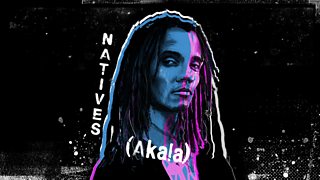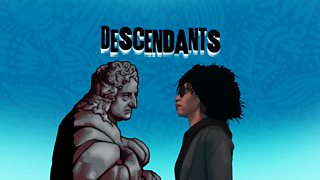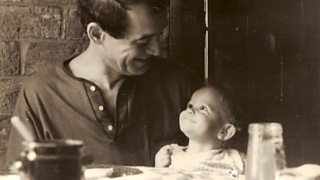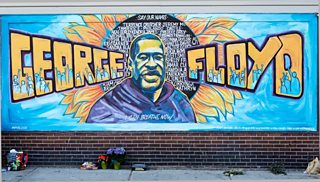Six things we learned from Akala’s Natives
With recent events in the world, from the fallout of Brexit to the Black Lives Matter movement, it can feel like we are living in an increasingly divided society. Issues of race, class and colonialism are as relevant today as ever, so there is no better time to get stuck in to Akala’s Natives, a Radio 4 audiobook that confronts these topics head-on, alongside the acclaimed rapper and activist’s personal story of growing up mixed-race through one of Britain’s most tumultuous periods. Here are just a few of the things we learned from this bold book:
1. Britain was not the first nation to abolish slavery
Many of us have heard about William Wilberforce, the English politician who led the fight to end Britain’s involvement in the transatlantic slave trade.
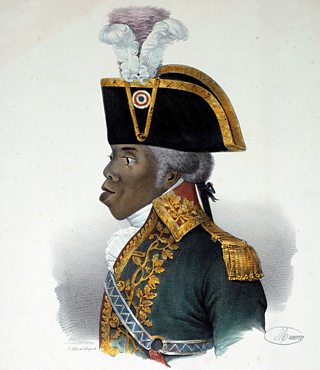
I was taught to lionise philosophers and politicians who believed me to be less than humanAkala
But, Akala asks: “Did Wilberforce do it all by himself? Was Britain the first nation to abolish slavery, and were Africans queuing up on the shores of the Atlantic to sell their own children to the highest bidder? No, no and nope.”
Tales of bloody revolutions, attempts at genocide and European military disasters have largely been lost from public consciousness. As it turns out, the 1807 Act which abolished the slave trade (but not ownership) throughout the British Empire, came three years after Haiti declared itself independent in 1804.
This was the first and only successful slave revolution in human history. Haiti abolished slavery immediately upon independence – 30 years before Britain would do so – and became the first state in the world to outlaw racism in its constitution.
2. Racism is not just about “bad people”
By many counts, Akala is successful. He is a self-employed entrepreneur, an independent artist, has travelled widely and has lectured at almost every university in the country.
While he does not deny the impact of his hard work and sacrifice, he asserts that without the support of his community – parents and teachers, community elders and football coaches – it is “inconceivable” that he would be where he is today.
“In another time and space, someone born into my socio-economic bracket would have had to drop out of school and work to help feed the family.”
Akala argues that we are trained to see racism as an issue of interpersonal morality. Good people are not racist – only bad people are. However, the reality is that racism is present in the historical, economic, social and legal structures that make success stories like his the exception and not the rule.
3. Racism is learned from an early age
At five years old, Akala had received his first racist insult and had already begun to internalise negative ideas about being black.
He explains: “Racist insults leave you feeling dirty because, even at five years old, we already know on some level that, in this society at least, we are indeed lesser citizens with all the baggage of racialised history following us ghost-like about our days.”
While at school, he was “taught to worship slave traders and imperialists, and lionise philosophers and politicians who believed [him] to be less than human.” His local pan-African Saturday school provided an alternative education that affirmed his blackness.
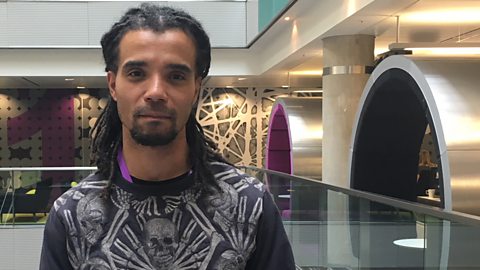
Akala: Arguments used to silence discussions on race
Akala responds to common 'counter arguments' to discussion on race in Britain’s history.
4. The 1980s was a period of uprisings and disturbances
In 1981, a fire at a house party in New Cross, south London, resulted in the death of 13 young people, and one survivor committed suicide years later. Many believed the fire was the result of a racist arson attack and that the police bungled the investigation, treating the affected families like suspects instead of victims. In response, 20,000 people – mostly black Britons – marched on Parliament chanting, ‘Blood a go run, if justice na come.’
In the years that followed, young black and Asian people, many of them children of the Windrush generation, led uprisings and disturbances across the country – from London and Bristol to Moss Side and Toxteth, from Handsworth in the Midlands to Chapeltown in Leeds.
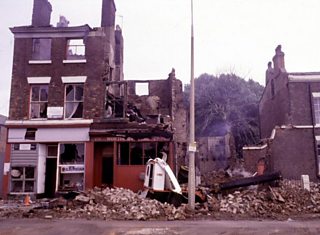
Real people will give birth to new traditions of resistance and creativity and work to create new futuresAkala
5. The Windrush generation were British
Akala’s grandparents were among the Windrush generation, hundreds of people from the British colonies who came to the “motherland” to help rebuild Britain in the post-war period.
“They were literally British citizens,” Akala explains. “Many of them Second World War veterans – with British passports to match, moving from one of Britain’s outposts to the metropole.”
However, the motherland largely met them with hostility. Many white Britons saw the Windrush generation as intruders, immigrants who threatened their job security and way of life.
“Never mind that Britain has a German royal family, a Norman ruling elite, a Greek patron saint, a Roman/Middle Eastern religion, Indian food as its national cuisine, an Arabic/Indian numeral system, a Latin alphabet and an identity predicated on a multi-ethnic, globe-spanning empire.”
6. The fight for equality will continue
Despite many signs of progress, if Akala were to be born today, he might still face racial abuse and socio-economic disadvantage.
However, Akala is confident that the fight for equality and justice will continue. “The National Front were run out of London by black Caribbeans, South Asians and an important set of ‘white British’ allies. British law firms have brought cases against the state on behalf of Kenyans tortured in British concentration camps during the 1950s.
“Real people will react in all of the myriads of ways they have done before,” he says, “by giving birth to new traditions of resistance and creativity and working to create new futures."
More from Radio 4
-
![]()
Natives: Race & Class in the Ruins of Empire
Charting the social, historical and political factors that have shaped the world we live in today.
-
![]()
Descendants
Descendants looks into our lives and our pasts and asks how we are connected to slavery.
-
![]()
Thinking In Colour
Gary Younge explores stories of racial passing, through the prism of Nella Larsen's book.
-
![]()
Is there a balm to heal the hurt and pain of racial injustice?
Reflections on one of the critical questions arising from the death of George Floyd.
